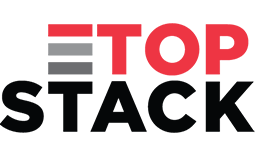How to Follow-Up After Attending a Career Fair

Career fairs may seem a little outdated in today’s modern digital application process. But they’re great for networking and may even land you a job. This is an especially pleasing thought if you’ve been sending resumes into the digital void and coming up empty. Contrary to what you may have heard, career fairs are not just for college students; they allow qualified candidates to sync with potential employers in a comfortable environment that puts applicants face-to-face with employers.
If you’re a job seeker, these events are worth your while. But one question we hear is, what happens after the career fair? How should candidates follow up with the recruiters and hiring managers they just met?
This article will give you our best tips for following up after a career fair.
Get Organized for Better Follow Up
When you show up to a career fair, make sure you come armed with a nice portfolio or briefcase filled with professionally printed resumes. Many companies will want you to fill out online applications after the career fair, but the general rule of thumb is that you should give your resume with contact information to everyone you meet.
Try to engage in as many face-to-face meetings as possible; this is not the time to be shy. Ask for business cards so you can follow up with the people you met. Also, write down the names and email addresses of employers if they don’t have a card and will share the information. Career fairs are the perfect networking event. Your job is to get out there, meet employers, and share your resume. But there is one thing you can do after the event that will leave a long-lasting impression, and that is to send a thank-you note.
Thanks for Meeting
Within 24-hours of the career fair, go through all the cards and contact information you have, and send personalized notes to the people you met. Speed is important; recruiters and hiring managers usually take a few days to wade through all of the resumes they received. If your email hits their inbox, it will be like pulling your CV to the very top of the pile.
You don’t even need the email to be very long. Just thank the person for their time and say you’d like to connect with them over job opportunities in the future. If you can remember something you spoke about, it may make them remember the conversation, so feel free to include any details about the meeting. The tone should be concise and professional; the relationship is too new to be super casual.
Make sure you end your email with your name and contact information and attach your resume electronically again to be sure they have it. If you visited a booth and didn’t meet anyone specifically, you can also research the hiring manager or HR coordinator of the company and send them a short note saying that you appreciated the opportunity to visit the booth at the career fair.
Finally, as the last step, we recommend connecting with anyone you met on LinkedIn to increase your professional social networks.
If you’re looking for a job and haven’t talked to the Top Stack team, we are standing by. Contact us to be connected with great employers in your area.











